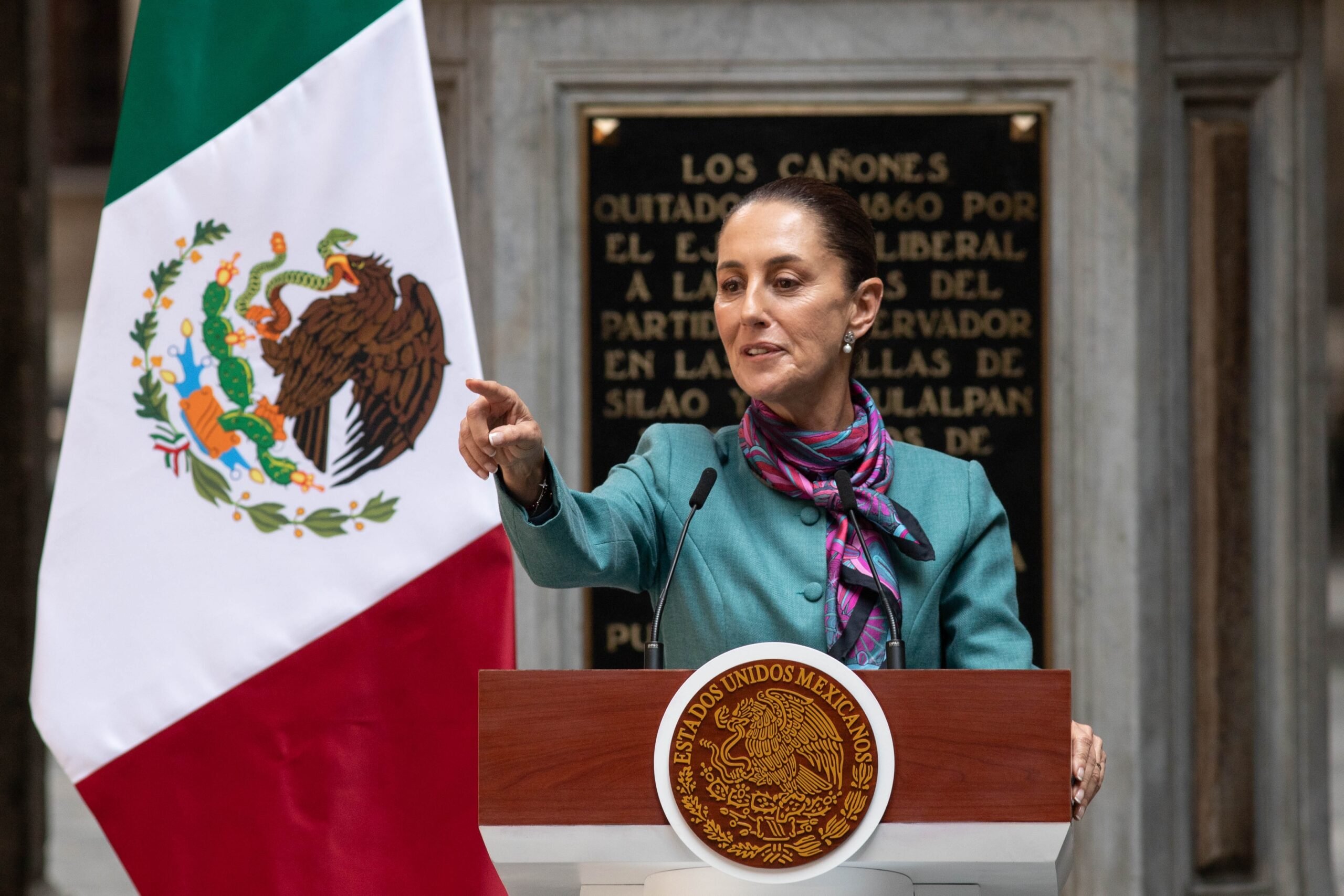Since the Bushes are well on their way to becoming a political dynasty like the Kennedys, that’s the way they should be judged – not simply as individuals. Like the Kennedys, the Bush offspring inherited power bases in politics and among the moneyed elite. Like the Kennedys, they have not hesitated, for money and political support, to cozy up to some operators who played fast and loose, to put it mildly. Just as father Joseph Kennedy showed his political brood how the Mafia could be useful, father George Bush provided entrée to a corrupt bureaucracy.
Recognizing the unity of the Bush dynasty-in-the-making, Mother Jones reporter Stephen Rizzo appraised the business ethics of the three most publicized Bush brothers in a single paragraph:
One of them [Jeb, now Governor of Florida] rented himself out to a crooked developer who scammed HUD and helped pry millions out of Medicare to fuel a giant health-care scam. A second [Texas Governor George W.] may have profited from an insider stock transaction in a [Persian] Gulf oil deal at the very time that U.S. soldiers were dying to make that region safe for oil. And a third son [Neil] ran a savings and loan into the ground while shoveling millions of its taxpayer-backed dollars into the pockets of two deadbeat partners.
An excessively harsh appraisal? Not at all. It’s quite accurate. But Florida’s Democratic Lieutenant Governor, Buddy McKay, had no luck trying to make Jeb Bush’s questionable business deals an issue last year in Florida’s gubernatorial campaign. And Ann Richards had little luck in 1994, using George W.’s probably illegal insider stock transaction in an attempt to arouse the Texas electorate. So we can assume that George W.’s presidential competitors will not find it easy to stir the public’s interest in such matters. Well, they can’t blame the press this time. Over the years, the questionable nature of the Bushes’ financial adventures has been laid out for inspection many times, particularly in the alternative press, such as The Texas Observer, Mother Jones, and The Nation. This is a review of their investigations.
Reporters have been particularly intrigued by George W.’s adventure in the oil industry, and well they might be. There was something about it that smacked of a shell game run by a very fast hand. With a pittance of his own money but several million dollars from his family’s Wall Street buddies, George W. launched an oil company in the mid-1970s. It was a failure. But before breathing its last, the company was absorbed by Spectrum 7, another rinky-dink oil company bankrolled by Reagan-Bush types. It, too, was a failure. This time the deathbed rescue, in 1986, was a merger into Harken Energy, yet another company with slender prospects.
Since he had an unbroken record of failures, George W. had nothing to offer Harken but his name. That was enough. He was made a company director and ultimately wound up with 1.5 million shares of Harken stock, making him the company’s third-largest non-institutional stockholder. He was also paid handsomely as a “consultant,” though shortly after the merger he moved back to Washington to help his father run for president. For Harken, that was the best move he could have made, it seems. In 1990, to the astonishment of the oil industry, little Harken – which had never drilled in water – beat out the international giant, Amoco, to win an exclusive offshore contract with the Persian Gulf nation, Bahrain.
When a Mother Jones reporter asked a Harken insider if George W.’s presence had helped win the contract, he responded: “Hell, that’s why he’s on the damn board. You say, ‘By the way, the president’s son sits on our board.’ You use that. There’s nothing wrong with that.”
Legally or morally wrong, of course not. But tacky, yes, like being used as a shill. Anyway, there’s no doubt about the wrongness of George W.’s next step. When the Bahrain contract was made public, Harken’s stock jumped in value, and he sold 212,140 shares – 60 percent of his holdings – for $848,500. Nice timing. Eight days later the company issued its quarterly report, showing a stunning loss of $23 million, and a month later the Gulf crisis exploded. The two blows caused Harken stock to drop nearly 50 percent from what it was when George W. cashed in.
As a member of Harken’s audit committee, he had been privy to the company’s lousy financial condition. And it’s possible, even likely, that President Bush, loaded with C.I.A. data, warned him of the coming crisis. Did George W. sell because he had this exclusive, insider information that wasn’t available to the public? That would have been a violation of Securities and Exchange Commission regulations. There’s no question that he waited eight months to file a disclosure of his sale with the S.E.C. – another violation.
The S.E.C. took no punitive action. But that wasn’t surprising. By then the Reagan-Bush administrations had gutted the regulatory agencies.
Which brings us to one of the interesting conundrums encountered in Bush finances. The contract with Bahrain would have been impossible to carry out by Harken alone; it needed big, big bucks. These were supplied by the Bass family of Fort Worth, a clan of billionaires. Was this a quid pro quo or just a happy coincidence? Of course, the Basses may have simply wanted to take a gamble, as they often did. On the other hand, they may have felt some obligation to help George W.’s company as a kind of payback; after all, his father’s administration had given $2 billion in tax-exempt subsidies to a group of “vultures” (to use Newsweek’s generic term) headed by Robert Bass, to help pick the carcass of the $16.3 billion American Savings and Loan, the biggest insolvent S&L in the country, but still very fleshy.
Robert Bass’ good fortune on that occasion may have had something to do with the fact that he was a member of Vice President Bush’s “Team 100,” a knot of rich men, each of whom contributed $100,000 or more to Bush’s 1988 presidential campaign. On the other hand, so much money, so many favors have been passed back and forth over the years between the Bushes and their incredibly wealthy backers, it is probably foolish to try to figure out all the quid pro quos that tie their daisy chain together.
Remember, 1988 was the year that the S&L industry, which had been plundered throughout the Reagan-Bush administration by a horde of crooks, began to have all its rot exposed. Vice President Bush managed to keep some of it under cover until after the election – particularly the role of his son Neil, who had been on the board of the infamous Silverado Banking, Savings and Loan of Denver. (The bank’s chairman took out insurance, so to speak, by helping to raise $300,000 for Bush’s presidential race.) Silverado – or “Desperado,” as buffs of the S&L crime wave called it – ultimately went bottom up (costing taxpayers an estimated $1 billion, not counting interest) because of bad debts, among which were the $132 million that Neil’s two partners in an oil company defaulted on. One of Neil’s partners sold some office buildings to Silverado for several times their economic worth; Neil, as a board member, voted to approve the purchases. For his conflict of interest, Neil would later pay a $50,000 fine and become known, in some circles, as the “poster boy of bunko banking.”
There was so much smoke rising from the Silverado ledgers that bank examiners had wanted to close down the establishment in the summer of 1988, but that would have inevitably spotlighted the Republican candidate’s son. According to Time magazine, a phone call from the White House – the identity of the person on that end of the line is still unknown – persuaded the examiners to hold off until December 9 before putting a lock on Silverado’s door. The Bush boys have been amazingly adept at using the elder George’s political rank to swing business deals (some of them a bit sticky), raise gobs of money, and cover up business blunders. And they do it without much attention or criticism from the mainstream press.
Obviously, press standards have changed. When Richard Nixon’s brother Donald – “my poor damn, dumb brother,” President Nixon called him – used his name to pry a loan of $205,000 from billionaire Howard Hughes, the mainstream press raised a stink that lasted years. And when brothers Donald and Edward Nixon were linked (slightly) to that international swindler and fugitive Robert Vesco, the mainstream press again had a field day. There was no such shock – except among a few of the better newspapers in Florida – when Jeb Bush and his partner persuaded federal regulators to pay off their second mortgage (very unusual ) so that they could buy, for $500,000, an office building that had previously been appraised at $4.56 million. Jeb’s father was our Vice President at the time. And that may also have made a difference when Jeb lobbied the Department of Health and Human Services for a waiver to its regulations on behalf of a Mafia-connected chap who later fled the country after swindling Medicare of $12 million.
Jeb was probably an unwitting stooge. Most people excused him as just dumb or naive, but he was savvy when it came to cashing in on his name. As we have seen, so were Neil and George W. On another occasion, their lobbying teamwork helped Enron, this country’s largest natural gas pipeline company, win a multi-million-dollar contract to build a pipeline linking Argentina and Chile. Enron showed its gratitude by giving $100,000 to George W.’s gubernatorial campaign.
Looking back over the investigations that appeared in the small press during the last dozen years – investigations that, for the most part, were not picked up and developed by the big press – one is inclined to think that the Bush clan is coated with even more Teflon than Ronald Reagan. Nearly a decade ago, for instance, some portions of the small press began to say (as did David Armstrong in the Observer, July 12, 1991), that Harken Oil Company “has direct links to institutions involved in drug smuggling, foreign currency manipulation, and the C.I.A.’s well-documented role in the destabilization of the Australian government. While it should be stressed that none of the players involved in Harken stand accused of any improper or illegal activity, the company’s association with these institutions raises serious questions.” Maybe. But if so, they were never answered. The mainstream press just hasn’t been very interested in the powers behind the Bushes.
One may also fairly conclude that the Bushes are blessed and protected beyond reason by those portions of the public’s brain that have turned to mush. What other explanation but public stupidity explains the denouement of the Texas Rangers deal? As everyone knows, George W. used $600,000 from the Harken stock sale to buy a tiny slice of the Texas Rangers; and when the Rangers were sold last year for $250 million, the second-largest amount ever paid for a baseball team, George W. emerged with more than $14.9 million. What had made the ball club so valuable was a gift from the public – a $200 million stadium mostly paid for by a sales tax that the citizens of Arlington, Texas, had overwhelmingly voted to assume.
Incredible. Ordinary folks – most of whom probably have a hard time meeting their mortgage payments – dug into their pockets to make George W. a rich man. But wait. It’s worse than that. Forget George W. for a moment. His reward was penny-ante compared to what some of his fellow owners got – men like Richard E. Rainwater, the mastermind of it all, the guy who allowed George W. to buy into the Rangers in the first place. Rainwater, rated by Fortune magazine as one of the 400 richest men in America, is the sorcerer who devised the investment strategy that elevated the Bass family from millionaires in the 1970s to billionaires in the 1990s. He probably owns the U.S. Treasury. And yet Texans are paying a sales tax to make him richer? Unbelievable.
With a public that dumb, George W. and the other Bushes needn’t worry that their indiscretions and abuses of power will attract much attention.
Robert Sherrill, a former editor of the Observer, has pursued the Bushes in many incarnations.(Suggestions for further reading: Mother Jones, September—October 1992; The Nation, November 19, 1990; The Village Voice, May 19, 1992; The Greatest-Ever Bank Robbery, by Martin Mayer, Scribner, 1990; George Bush: The Life of a Lone Star Yankee by Herbert S. Parmet, Scribner, 1997; America: Who Really Pays the Taxes? Barlett and Steele, Touchstone, 1994.)


